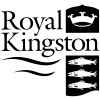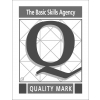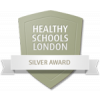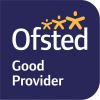Reading

Reading for Pleasure
Reading for pleasure is at the top of our reading agenda at King Athelstan and we have worked hard to create a positive reading environment.
How do we promote reading at King Athelstan?
- Reading Corners: each class has a reading corner which is full to the brim with classical and contemporary children’s literature
- The Bucket List (reading spine): each year group has an extensive list of books that the children are encouraged to read by the end of the year – for each book read the children receive a sticker to collect on their ‘Bucket List Bingo Chart’ CLICK HERE to find out more.
- Home Reading Scheme: our home reading scheme is an eclectic mix of fiction and non-fiction published by many different programmes, to ensure variety
- Free Reading Time: at different points of the day the children are encouraged to read for pleasure
- Story Time: teachers read stories to children all the way from Nursery to Year 6 - you are never too old to enjoy a good story!
- World Book Day: this is always a special day in the King Athelstan calendar; we plan a carousel of activities all linked to a story and the children get to experience creative lessons throughout the day as well as dressing up as a book character or in their pyjamas ready for a bedtime story!
- Library: this is a quiet space for children to develop their love of reading. Classes visit the library with their teacher and children choose their own books to borrow
- Reading Record Books: Children in Y1-Y6 have a reading record book where their reading at home is logged and they collect dots. For every 20 dots they will receive either a certificate or a reading record prize!
As parents and carers you can support the love of reading at home by listening to your child read and reading to them daily. Bed time stories and reading at home, not only increase academic ability, but also help to strengthen family relationships and foster a lifelong love of books.
Click here to see our:
Importance of daily reading - visual table
Reading Bucket List
The Book Trust have some amazing resources to help you with reading at home. Click the Book Trust picture below for some tips and advice:
Sign up free to Oxford Owl for eBooks online by clicking the picture below:
Phonics Programme 
If you walked into a phonics lesson at King Athelstan you would see a buzz of excitement and activity as the children learn to read and write through systematic synthetic phonics. Phonics is a way of matching the small units of sound in spoken English to the letters or groups of letters which represent that sound in writing.
As a school we follow the Ruth Miskin, Read Write Inc. (RWI) programme.
RWI uses ‘Fred talk’ as a teaching strategy which helps children read unfamiliar words by pronouncing each sound in the word one at a time. Children can start blending sounds into words as soon as they know a small group of letters well. Sound blending is essential in reading. Children use ‘sound buttons’ to help them identify each unit of sound in a word:

RWI links every sound to a picture and a phrase to help the children remember it. For example: the letters a and y, once joined together, make the sound ‘ay’ and the phase we use to remember it is:
‘May I play?’ 
As a school we have created our own phrases for some of the alternative spellings taught in KS1 and have added Makaton actions to the sounds learnt in reception to support those children who learn through kinaesthetic activity. Reception children take home 'Pocket Rocket' stories each week with the sounds that they have been learning and KS1 children receive phonics homework to help recap sounds learnt each week.


Click here for our:
Phonics Progression
Handwriting and Phonic Phrases
Sound Mats
We use sound mats to help build children's confidence and to develop independence during reading and writing lessons.
Click here to see our:
EYFS - Set 1 and 2 Sound Mat
Year 1 - Set 2 and 3 Sound Mat
KS1 - Alternative Spellings and Tricky Words Mat
KS2 Sound Mat
Pure sounds
Using pure sounds is imperative when children are learning to blend for reading and segment for spelling. This video will help you with articulating the phonemes (units of sound). Click the picture below:
As part of the RWI programme, children also learn to read and spell common exception (high frequency) words. These are words with spelling rules they have not yet learnt, for example: the, was, could, there, friend. We call these ‘red words’ as they must be sight read (memorised), rather than sounded out.

Click here to see our:
RWI Parent and Carer Guide
EYFS Parent Carer Workshop
KS1 Parent and Carer Workshop
RWI is taught explicitly from Reception to Year 2 to support the early stages of reading and spelling. As soon as children have completed the RWI phonics programme, they move on to learning alternative spelling rules and reading more complex texts.
We expect all children to read at home daily with an adult and record this in their reading record. Every time children read, they get a ‘dot’ on a special reward card. When they collect 20 dots they will receive a certificate and when they collect 40 dots they can choose a special prize!

Click here to find out more about our school reading scheme:
Reading Scheme Progression
Guided Reading
Once children have developed their decoding skills, they can move onto our guided reading programme.
If you walked into a reading lesson at King Athelstan you would see teachers engrossing children in amazingly illustrated picture books, timeless classics, modern masterpieces, performance poetry and non-fiction texts, bringing year group topics to life. During reading lessons children develop their inference, deduction and retrieval skills and understanding of new and exciting vocabulary.
As mentioned before, the ‘love of reading’ is vital to the wellbeing of our children, so we have designed our reading curriculum to be engaging, comprehensive and most of all, fun. We are very proud of the fact that when studying a book, we have enough copies of the paperback for one each, so that the children experience the joy of holding a real text when reading.
We use different teaching techniques such as: guided reading, shared reading and independent reading to develop children’s comprehension and fluency skills, with a real focus on paired talk and partner work to support vocabulary development.
Click here to see our:
Reading Skills Progression
- WBD-challenge-chart.pdf (Adobe Acrobat PDF file / 747 KB)
- KA-phonics-progression-2021.pdf (Adobe Acrobat PDF file / 452 KB)







